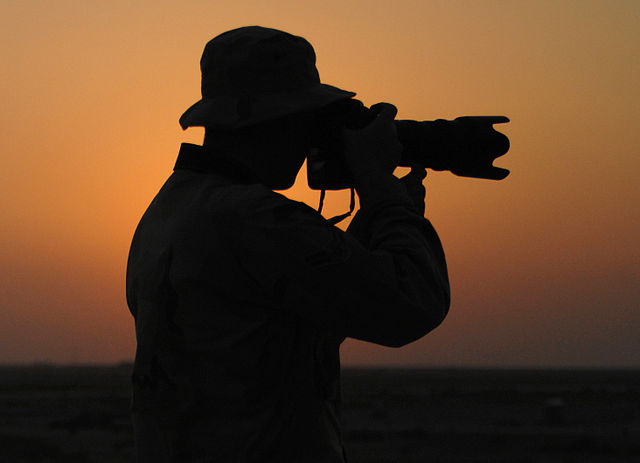Long-term unemployment is a difficult mental hurdle to overcome for those considering traveling around the world. After working decades to do well in school to land a steady job, you plan to stop cold turkey to experience life beyond your comfort zone. It’s a worthwhile venture that will change you dramatically as you’re exposed to new challenges and inspiring moments. Nonetheless, it’s difficult to see the reward ahead when you are giving up so much in the beginning.
But your experience shouldn’t hinder the growth of your resume. Not everyone realizes that it’s possible to build valuable skills that can be added to your resume before you even hit the road – before you purchase travel insurance! Backpackers may acquire soft skills as they travel – like adaptability, negotiation tactics, and risk assessment – but there are marketable skills that anyone has the opportunity to learn or hone before departing.
Not everyone realizes that it’s possible to build valuable skills that can be added to your resume before you hit the road.
Start the planning phase of all aspects of your trip as early as possible to maximize your pre-departure free time. As you’re researching countries, cultures, and festivals for your itinerary, examine your professional-level strengths to determine your weaknesses. Consider skills you’d like to improve that will be beneficial during your travels and will also enhance your resume in the eyes of a prospective employer. A few key areas to build proficiency include: writing, photography, website creation and maintenance, learning a new language, and social media and marketing your brand. Working on these skills and adding them to your resume before leaving will make you more confident in your abilities and even more valuable upon your return.
Writing

Anyone scrolling through their Twitter feed or searching for news stories online has access to content from innumerable authors. Like any craft, it is evident who has fine-tuned their writing. They have found their voice as a writer and are able to express their thoughts clearly and concisely. As information becomes more abundant, employers seek people who are able to weed through details and produce final copy that highlights the most important takeaway points. These strengths not only allow you to draft a stronger resume, but also add a valued skill that no employer will underrate.
To begin developing this skill, sign up for a writing and editing class. But don’t stop there. Great writers subscribe to the notion that to be a great writer, you have to read. As you read through articles in a newspaper or magazine, you’ll not only increase your vocabulary but also recognize how professional writers structure their pieces and keep their writing concise.
Even if you consider yourself a decent writer, keep practicing. Write on different topics for your personal blog or submission elsewhere. Content providers like Helium make it easy to upload articles often on topics that interest you, while challenging you to submit your best work as it competes with other authors to earn you money. Another requirement of a community like Helium is that you must edit other people’s work. Whether you’re proofreading submissions on that site or a random travel blog, catching grammatical, punctuation, and spelling errors will make you more cognizant of those same mistakes in your own writing.
Following to these recommendations will help you find your voice, sharpen your writing, strengthen your self-editing, and ultimately generate a portfolio that shows versatility. The quality and consistency of your work will help you secure freelancing gigs on the road and keep your writing polished for future employment opportunities.
Photography

Between purchasing a camera, lenses, a tripod, and more, photography can quickly become a pricey hobby. You’re not going to want to lug around expensive equipment while children hassle you for money on the streets of India. But even if you don’t have the new top-of-the-line Nikon, you can still shoot publication-worthy photographs.
Photography skills are best learned through hands-on practice while simultaneously taking a class to learn about light, aperture, shutter speed, composition, and other elements of photography. Your DSLR certainly has an automatic setting, but knowing how to actually use the manual setting will allow you to add interest and intention to your photographs. Well-composed and edited photographs can serve as mementos, add another dimension to your website, and can be used for postcards, business cards, or submitted to contests.
Showing expertise in this field not only results in photographs that may be picked up for publication, but also shows technical skills with regard to camera equipment and editing software. Even if you’re not interested in selling your photographs to stock photography websites or submitting them for publication, making an investment toward enhancing your skills in this area will pay off throughout your life. Exercising your creativity will hone your eye for design, composition, and spotting unique elements in an otherwise ordinary scene. These skills also transfer to photography editing programs like Photoshop. Adding creative technical skills like these to your resume will give you a unique edge that will set you apart from the competition.
Website creation and maintenance

As of publication, there are more than 74 million WordPress sites worldwide. That’s just WordPress. Sure, it seems like everyone and their unborn child has their own website, but that doesn’t diminish the value of maintaining your own and understanding how it all works.
Chronicling your journey online won’t just keep your worried family and travel-hungry friends satisfied. A blog or personal website will serve as your most updated portfolio for your writing, photography, and videography. Having already honed the other aforementioned skills prior to departure, your strengths will shine throughout your site and support you as you seek odd jobs on the road. Additionally, if you’re able to dive deeper into website creation and learn coding and search engine optimization (SEO), you’ll be a stronger freelance candidate. These technical skills will enhance your resume even if you don’t accept freelance work during your round-the-world (RTW) trip, as most employers now expect applicants to possess such competencies.
If you have no experience in website creation, start by registering for your own blog. Put adequate thought into the site name, as this will be your brand and online web presence. One way to keep it professional and broad – in case you decide to write about various topics – is to use your name or a combination of your name and a noun or descriptive adjective.
These technical skills will enhance your resume even if you don’t accept freelance work during your round-the-world (RTW) trip, as most employers now expect applicants to possess such competencies.
After registering for a blog, explore all of the content management settings to learn how to navigate through and customize the site. Design a wireframe to show what information you’ll include on the site and where content will be displayed. After creating a website you’re proud of, bring it to the next level: secure a domain name, research best practices for website creation, and upgrade to the premium version to edit the code. Hone your new technical skills further by registering for a local or online class and continue your hands-on practice.
Learn a new language

Fluency comes through immersion, so it’s important to understand and accept that Rosetta Stone can only take you so far while you’re surrounded by speakers of your native language. But if you’re focused and dedicated, you could potentially depart as a beginner or intermediate speaker. These new language skills will enrich your experience and may even help you get out of an uncomfortable situation in a country where the language is spoken.
After sharpening fluency abroad, you’ll be able to confidently add your skill level to your resume. Bilingual and multilingual skills are highly sought after by employers of all sizes and can help you secure an international job as well. If the latter option appeals to you, there are many ways to start immediately: borrow a language book from the library, sign up for a free online language course, register for an immersion program, and find a native speaker to practice with through meet-up groups or online boards.
Social media and marketing your personal brand

Give your name a name. What will your online reputation be? Quitting your job to travel around the world wipes the slate clean. Think about what you want to be known for when you reemerge, then start creating that persona online. Your personal website is a good place to start, but you need to expand your web presence through social media. Being well-known online can help you network, open you up to freelance or sponsorship opportunities, and expose you to more recommendations and other details that will be valuable for your journey.
Start by signing up for social media sites and keep your web persona consistent – name, expertise, personality characteristics. Research the etiquette for each site and begin interacting with other people according to the proper etiquette. Engage others through your personal website, writing, photography, and language skills. Remain interactive so the other user’s experience is always positive – no one wants to interact with someone who only talks about himself or herself all the time.
Aside from the potential benefits social media has for your RTW trip, these skills are very important to all businesses as they strive to outdo competition in the digital sphere. Being successful at engaging others and marketing yourself will make you an attractive employment candidate.
Dedication to personal growth reveals your interest in the area of expertise, which is something employers like, as it intimates longevity.
While you hone these resume-building skills on the road, you’re challenging your creativity and limits. This will keep your mind sharp, enhance your confidence in your abilities, and keep you motivated to continue advancing. And all the while, you are filling the employment hole in your resume with self-taught skills. Dedication to personal growth reveals your interest in the area of expertise, which is something employers like, as it intimates longevity.
Not all of the suggestions in this article will correlate with your ideal post-travel job. But continuous learning and newly developed expertise may open new doors while on the road. It can also result in a freelance contract, and more importantly, could reveal an interest you hadn’t yet tapped into and thereby create a new passion or hobby.
Planning and executing a RTW leads to more than simply checking off to-do list items and tasting different cuisines, whether you’re inadvertently picking up soft skills on the road or improving new ones. And long-term unemployment doesn’t have to negatively affect your resume. Traveling around the world will undoubtedly change you in unforeseen ways, and it can also be the catalyst you need to learn new skills that will highlight your strengths and propel you toward a promising future.
To read more about the benefits of long-term travel, check out the following articles and resources:
- Why It’s Not Crazy for Working Professionals to Quit Their Jobs and Travel the World
- Why a Travel Break Can Be the Best Career Move You’ll Ever Make
- Top 10 Reasons to Take a Career Break…and Travel
- Should You Quit Your Job to Travel in a Still Uncertain Economy?
- 11 Reasons to Stop Dreaming and Start Planning Your Round the World Trip
- Click here if you want personal help planning your RTW trip from a BootsnAll team member
 Photo credits: Jerry Bunkers, US Air Force, Saifulwebid, Jerry Bunkers, Spencer E Holtaway
Photo credits: Jerry Bunkers, US Air Force, Saifulwebid, Jerry Bunkers, Spencer E Holtaway